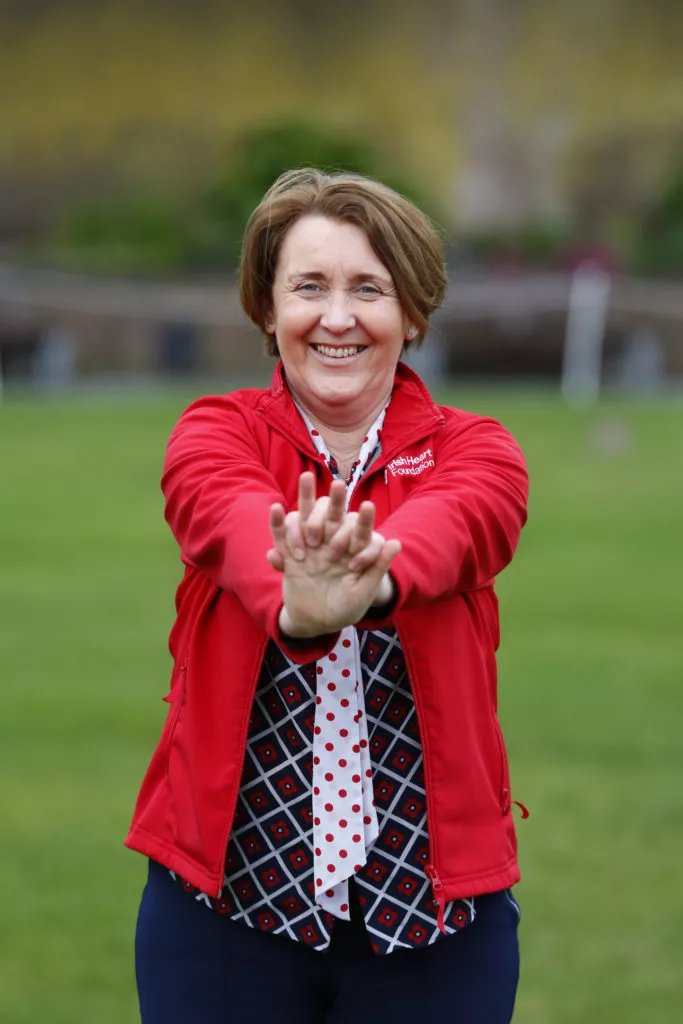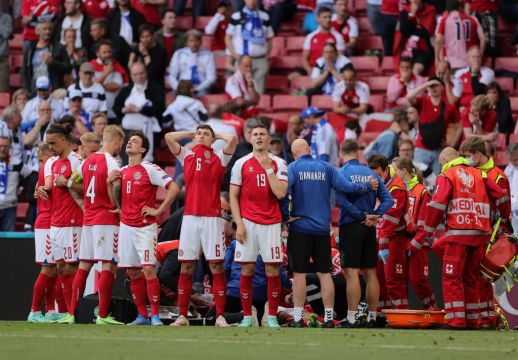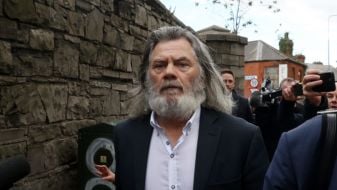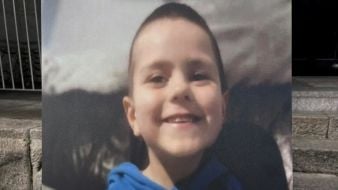The quick action of teammates and officials to save the life of Danish footballer Christian Eriksen has highlighted the need for bystanders to react with speed to a cardiac arrest, the Irish Heart Foundation said today.
Eriksen collapsed on Saturday during the first half of Denmark’s opening Euro 2020 match against Finland before being treated on the pitch and hospitalised.
“We know that without CPR or a defibrillator, your chances of survival decrease by 10% every minute, so because of the quick actions of everyone around him, Christian Eriksen survived,” said Brigid Sinnott, resuscitation manager at the Irish Heart Foundation.
“He was fortunate that it happened in such a public place with people on hand to immediately begin CPR.
“We know that 70% of cardiac arrests happen in the home, so it is vital that people understand what to do in that situation.
“Speed is of the essence — speed in recognising cardiac arrest, calling the emergency services, performing compressions and in using the AED (automated external defibrillator). It is the difference between life and death.
“In Christian Eriksen’s case, it was recognised early that he was having a cardiac arrest, he was helped immediately, and they had a defibrillator on his chest very quickly.
“And the fact that it was his teammates who were first to perform CPR on him before the medics got there, shows that anyone can do it.”
A cardiac arrest occurs when the heart beats fast and wildly or stops beating altogether. This can happen due to an abrupt disturbance in the heart’s internal electrical system that normally regulates the heartbeat.
The heart cannot pump blood to the brain, lungs and other vital organs and without treatment, the outcome is usually fatal.

Data from the 2019 Out-of-Hospital Cardiac Arrest Report shows that Ireland has bystander CPR rates (members of the public who perform CPR in such emergencies) of 84 per cent.
“If the electrics in your heart go wrong you need a defibrillator to reset them, while CPR compressions act as a pump for the heart,” said Ms Sinnott.
“We need to get more defibrillators on chests and we would ask everyone to check where their nearest one is and whether it is accessible all the time.
“We have some easy to follow instructional videos on our website irishheart.ie and we encourage everyone to watch them, even if you have been trained in CPR in the past.
“The first step in CPR is to call 112 or 999 and the second is to push hard and fast on the centre of the chest.
“It is really important for people to realise that they don’t have to be a trained doctor or medical professional to perform CPR — anybody can do it and you cannot do any harm.”
As a leading training provider, the Irish Heart Foundation has courses across all the links in the chain of survival.







